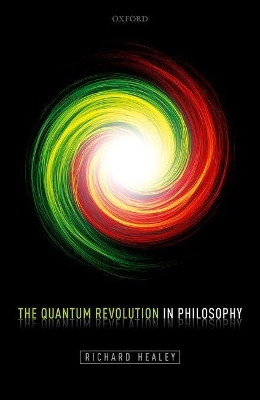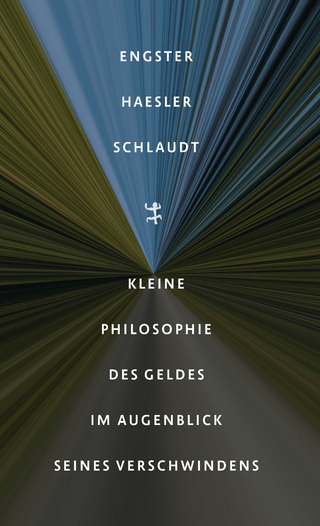
The Quantum Revolution in Philosophy
Seiten
2017
Oxford University Press (Verlag)
978-0-19-871405-7 (ISBN)
Oxford University Press (Verlag)
978-0-19-871405-7 (ISBN)
Quantum theory launched a revolution in physics. But we have yet to understand the revolution's significance for philosophy. Richard Healey opens a path to such understanding. The first part of this book offers a self-contained but opinionated introduction to quantum theory. The second part assesses the theory's philosophical significance.
Quantum theory launched a revolution in physics. But we have yet to understand the revolution's significance for philosophy. Richard Healey opens a path to such understanding. Most studies of the conceptual foundations of quantum theory first try to interpret the theory - to say how the world could possibly be the way the theory says it is. But, though fundamental, quantum theory is enormously successful without describing the world in its own terms. When properly applied, models of quantum theory offer good advice on the significance and credibility of claims about the world expressed in other terms. This first philosophical lesson of the quantum revolution dissolves the quantum measurement problem. Pragmatist treatments of probability and causation show how quantum theory may be used to explain the non-localized correlations that have been thought to involve "spooky" instantaneous action at a distance. Given environmental decoherence, a pragmatist inferentialist approach to content shows when talk of quantum probabilities is licensed, resolves any residual worries about whether a quantum measurement has a determinate outcome, and solves a dilemma about the ontology of a quantum field theory. This approach to meaning and reference also reveals the nature and limits of objective description in the light of quantum theory. While these pragmatist approaches to probability, causation, explanation and content may be independently motivated by philosophical argument, their successful application here illustrates their practical importance in helping philosophers come to terms with the quantum revolution.
Quantum theory launched a revolution in physics. But we have yet to understand the revolution's significance for philosophy. Richard Healey opens a path to such understanding. Most studies of the conceptual foundations of quantum theory first try to interpret the theory - to say how the world could possibly be the way the theory says it is. But, though fundamental, quantum theory is enormously successful without describing the world in its own terms. When properly applied, models of quantum theory offer good advice on the significance and credibility of claims about the world expressed in other terms. This first philosophical lesson of the quantum revolution dissolves the quantum measurement problem. Pragmatist treatments of probability and causation show how quantum theory may be used to explain the non-localized correlations that have been thought to involve "spooky" instantaneous action at a distance. Given environmental decoherence, a pragmatist inferentialist approach to content shows when talk of quantum probabilities is licensed, resolves any residual worries about whether a quantum measurement has a determinate outcome, and solves a dilemma about the ontology of a quantum field theory. This approach to meaning and reference also reveals the nature and limits of objective description in the light of quantum theory. While these pragmatist approaches to probability, causation, explanation and content may be independently motivated by philosophical argument, their successful application here illustrates their practical importance in helping philosophers come to terms with the quantum revolution.
Richard Healey has been Professor of Philosophy at the University of Arizona since 1991. One aim of his research has been to inquire how far foundational studies of physics shed light on metaphysical topics such as holism, realism, composition, time and causation. He is now exploring the relations between science and metaphysics from a broadly pragmatist perspective. His Gauging What's Real (2007), exploring the conceptual foundations of gauge theories in physics, was awarded the Lakatos Prize in the philosophy of science.
I: QUANTUM THEORY; II: PHILOSOPHICAL REVELATIONS
| Erscheinungsdatum | 28.09.2017 |
|---|---|
| Verlagsort | Oxford |
| Sprache | englisch |
| Maße | 160 x 240 mm |
| Gewicht | 608 g |
| Themenwelt | Geisteswissenschaften ► Philosophie ► Metaphysik / Ontologie |
| Naturwissenschaften ► Physik / Astronomie ► Quantenphysik | |
| ISBN-10 | 0-19-871405-X / 019871405X |
| ISBN-13 | 978-0-19-871405-7 / 9780198714057 |
| Zustand | Neuware |
| Haben Sie eine Frage zum Produkt? |
Mehr entdecken
aus dem Bereich
aus dem Bereich
Buch | Hardcover (2024)
Matthes & Seitz (Verlag)
28,00 €
Über konstruktivistisches Denken in der Theologie
Buch | Softcover (2024)
Verlag Herder
58,00 €


